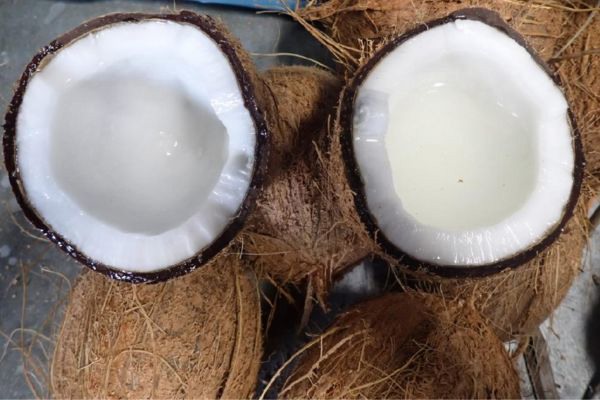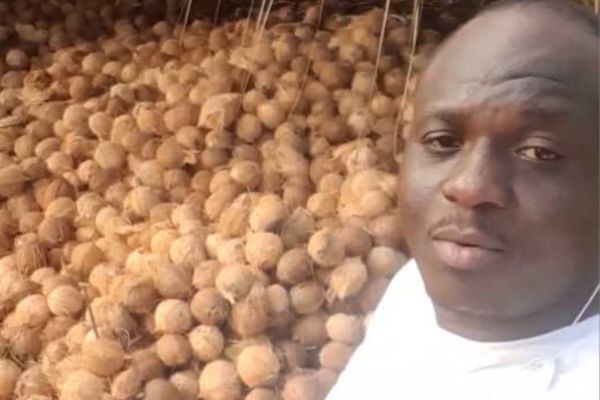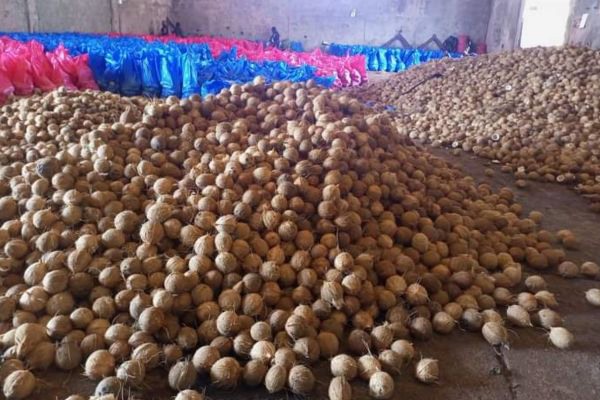Climatic conditions in Côte d'Ivoire, considering the beginning of the long-awaited rainy season, are leading to a slowdown in coconut production, according to Delcambre Wawa, general manager of the exporting producer Wawa.
Wawa explains: "At our company level, we currently export an average monthly volume of 90 tons. However, we expect a drop soon due to the start of the rainy season, and a return to normal volumes, or even a peak in volumes, in July. Our situation is representative of all producers and exporters at the national level."

According to the producer, the southern regions of Côte d'Ivoire currently have a greater concentration of exports, with daily volumes of 50 tons. The varieties grown in Côte d'Ivoire are hybrid and GOA (Great West Africa), with sizes of 450-600 g and above.
Wawa adds, "Phytosanitary conditions are good and the fruit is of acceptable quality. However, we are currently witnessing rather difficult logistical conditions, with difficult access to production areas and congestion at the ports, which is causing delays for shipping companies, but these problems can be overcome."

Commercially, "the campaign was marked by strong demand from intermediaries from Nigeria, Senegal, and Ghana, who offered higher than average prices. This led to a drop in the turnover of Ivorian exporters, who were unable to match the new high prices."
Beyond this novelty in the trade channels, "the most demanded destination for Ivorian coconuts is the Netherlands," according to Wawa. "However, there is a slowdown or even an absence of exports to Russia due to the conflict in Eastern Europe. We are also considering entering the Middle East market, which is more remunerative in terms of price," he says.

The Ivorian production stands out from the international competition thanks to objective advantages, assures Wawa: "Among the giants of the coconut such as India, Sri Lanka or Brazil, we have the particularity of an essentially organic production. Our second advantage is our proximity to Europe, which translates into a shorter transit time, lower transport costs, and therefore more attractive FOB and CIF prices.
The prices will, however, increase soon, according to the producer. "This is due to an expected increase in the cost of labor, and a greater demand after the end of the mango season and in connection with the Islamic festive calendar. The immediate price increase is estimated at 14%, to reach 12.5 EUR FOB / 22 kg package."
For more information:
Delcambre Wawa
Entreprise Wawa
Tel: 00225 01 42 870 878
Email: [email protected]
www.entreprisewawa.net
